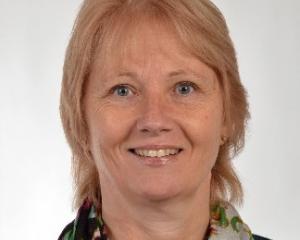Age Concern Otago has pledged to continue the modified tai chi classes but is mystified as to how ACC could abandon such a successful programme.
Age Concern Otago chief executive Susan Davidson was last week told the organisation's $31,600 annual contract to provide the classes to seniors in Dunedin and Otago will end on June 30, and will not be renewed.
The programme has run for more than 10 years.
Age Concern Otago is one of 40 providers throughout New Zealand whose modified tai chi contracts, which cost ACC $767,000 over the past year, will end.
"ACC is now shifting our focus to falls prevention initiatives for older people where we believe greater value can be obtained," an ACC spokesman said last night.
"One such initiative we're currently involved with is working with the health sector to provide Vitamin D supplements for older people living in residential care facilities. Vitamin D has been shown to reduce falls and fall-related injuries, by increasing a person's muscle and bone strength."
In the meantime, ACC would make information associated with the modified tai chi programme available to the community to assist classes to continue. A national body Tai Chi for Health Community New Zealand had been established to encourage the sustainability of tai chi programmes, the spokesman said.
Age Concern New Zealand chief executive Ann Martin was aghast at the loss of funding for the programme.
"ACC has long been singing the praises of modified tai chi, telling us that tai chi reduces falls by 47%," Ms Martin said.
"Now they are saying that the classes are not cost effective.
"We wonder how a programme that prevents almost 50% of falls cannot be cost effective."Although the loss was a blow to Age Concern Otago, Ms Davidson was determined the classes would continue and planned to pursue other funding sources.
"This loss of funding won't mean the end - we will be working very hard between now and the end of June to find more funding."
The classes were valuable for falls prevention and general health and well-being.
They also provided opportunities for social inclusion.
The ACC funding enabled organisations to train about 1000 modified tai chi leaders nationally, since 2007, including dozens in Otago.
"Thanks to this programme, we do have a good number of people trained to lead tai chi classes, which should stand us in good stead," Ms Davidson said.
Age Concern Otago supports 20 new modified tai chi classes for beginners, involving about 300 people, each year across Otago. After people complete the beginners classes, most go on to participate in peer-led tai chi classes, of which there are a further 20 in the region.
Age Concern Otago funds the peer-led classes itself.
The organisation also provides ACC-funded Strength and Balance classes through its Steady As You Go programme.
Between the two funded programmes and its peer-led classes, which are co-ordinated by Margaret Dando, the organisation offers 113 classes in Otago, involving up to 1500 people.
"We make that funding go a long way," Ms Davidson said.
The programmes also receive some funding from the Ministry of Health.
Age Concern Otago is waiting to hear about the future of the Strength and Balance ACC funding, although Ms Davidson is "very hopeful" that it will continue.
Contacted by The Star, University of Otago Department of Preventive and Social Medicine senior lecturer Dr Debra Waters expressed concern at the cuts.
The peer-led aspect of the modified tai chi and Strength and Balance programmes were garnering international attention as a model for the future, she said.
"The peer-led model for these classes is probably the most sustainable and cost effective method of delivery," Dr Waters said.
"I really hope that they [Age Concern Otago] can manage to maintain these classes."
Dr Waters participated in an Auckland University of Technology-led study to evaluate the effectiveness of tai chi, in 2006/07, which found that tai chi improved strength and balance and reduced falls.
Taking part in classes also helped to reduce social isolation.
"With a growing older population, it is important to keep people healthy and independent for as long as possible," Dr Waters said.
"Tai chi has the evidence to support it."





